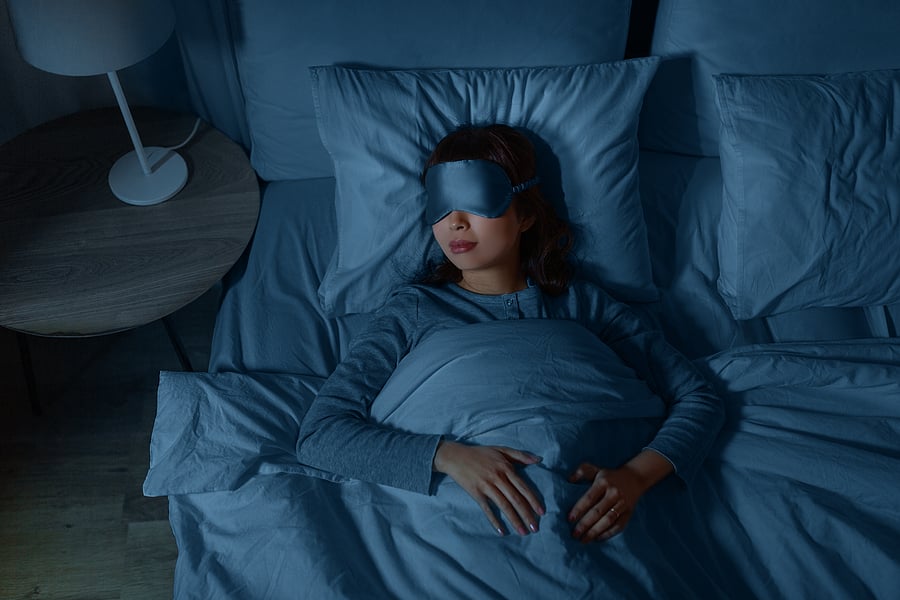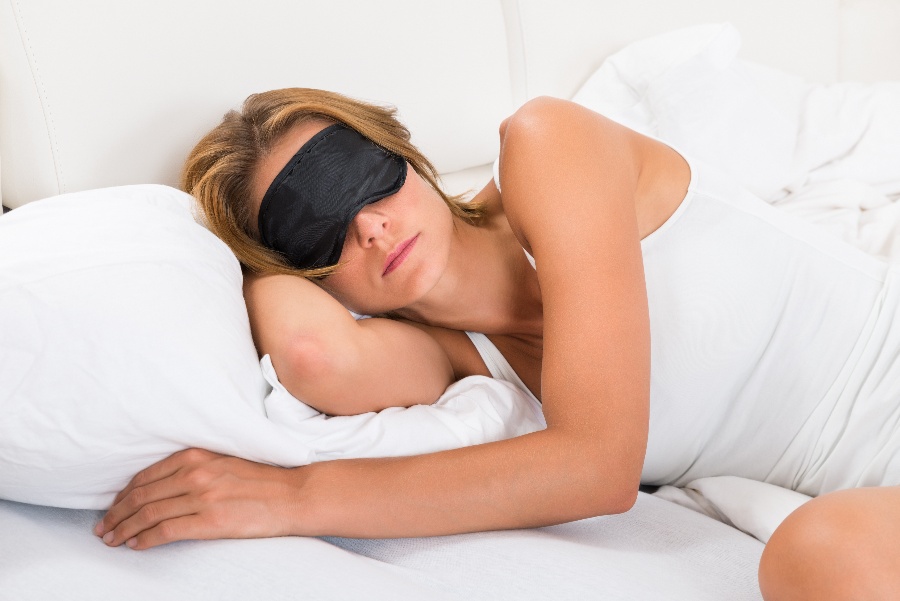You might have seen people wearing those sleep masks that just fit over the eyes. Do sleep masks work? If so, why and how do they work? Let's take a look.
What is a Sleep Mask?
A sleep mask is a fabric mask that covers the eyes. It works by blocking out light, which helps your brain realize it is time to sleep. Some sleep masks are designed to have either a cooling or a heating effect. Both natural and artificial light suppress our production of melatonin, which can lead to insomnia, poor quality sleep, and other difficulties.
Who Should Wear a Sleep Mask?
 The following types of people tend to benefit most from sleep masks:
The following types of people tend to benefit most from sleep masks:
- People who are unable to get their bedroom dark enough, including many city dwellers.
- Night shift workers and others who sleep during the day.
- People with insomnia.
- People who can't avoid having their phone in their bedroom. The blue light from phone screens can wake you up quickly, although a phone case can help.
- People who suffer from migraines or other chronic headaches. One side effect of having migraines is being more sensitive to light. Sleep masks can also be used to help you recover from an episode.
- People who travel a lot, especially if they often take a red eye flight or an overnight train.
However, anyone who has interrupted sleep may find a mask worth trying. However, they don't work for everyone. Some people may find the mask itself keeps them awake.
How to Use a Sleep Mask Correctly
Sleep masks have to be used and fitted correctly. Make sure that:
- Your sleep mask actually blocks out all of the light. Any light that sneaks in around the edges will make the effect less useful. Try the sleep mask on in bright light so you can tell how good it is. Ideally, shop for your sleep mask in person.
- You are not wearing your sleep mask too tightly. If you wake up with blurred vision, then your mask is too tight. The blurring is caused by the pressure on your eyelids. Loosen the mask or consider getting one with eye cups to make sure it doesn't touch your eyes.
A sleep mask won't necessarily solve all of your sleep problems, and if you aren't one of the people it works for, don't worry about it.
What Kind of Sleep Mask Should You Get?
It is important to get the right kind of sleep mask. The wrong kind might actually impact your sleep negatively. First of all, the sleep mask needs to fit. Not all sleep masks are the same shape and you might have to try several to find one which does the job. Other things to consider:
How does the mask fasten? Most masks tie or clasp closed at the front or side of your head. If you are a side sleeper, you do not want the fastener on the side of your head, or you might roll over onto that side, feel it dig in and wake up.
What fabric do you want? Silk masks are well known for being particularly good for your skin, but also more expensive. If your mask is making you itch, then it's likely that the fabric is too rough for your skin. Some cheaper masks are made of polyester, which some people are allergic to.
Do you want a mask with eye cups? Some people find the eye cups annoying, others find that without them the mask touches their eyes. Eye cups are also useful if you are proud of your long eyelashes. Masks with cups are also a bit larger and may not fit as well into your carry on.
Does the mask have nose wire? Nose wire helps block more light and forms a better seal for most people.
Do you want a cooling mask? If your eyes tend to be puffy in the morning, a cooling mask can help.
A sleep mask is a cheap, inexpensive thing you can try to improve your sleep. If it doesn't work, you won't have lost much. Sleep masks are particularly useful for travelers and people who have to sleep during the day.
If you’re having trouble sleeping, it could be your mattress! Try a new mattress today at one of our two Sarasota and Venice locations to start sleeping better tonight.





